Long-form content helps you in improving search rankings and reduce bounce rates. But what if it does not provide value and is stuffed with a lot of keywords? It is true that some of the content can become of no value, or in other words, it turns out to be thin content. People don’t want to waste time reading poorly written, low-quality content or content that isn’t interesting or engaging.
In this knowledgebase article, we’ll talk about thin content, its effects on SEO, and how to identify and remove them.
Table of Contents
1 What is Thin Content?
Thin content is nothing but the content on a web page that provides little or no value to the visitor. Although it does not have a negative impact on your ranking, it tampers your brand value among your audience.
Duplicate content, content scraped from other websites, auto-generated content, low-quality affiliate pages, doorway pages, etc., are considered thin content pages too.
1.1 Duplicate Content
Duplicate content is a term used when content appears on more than one web page. It can have a significant impact on rankings.
For example, if more than one URL has the same content, search engines will be confused to show which URL to list higher in the search results. In such circumstances, search engines would rank both URLs lower and might give preference to other web pages.
1.2 Content Scraped from Other Websites
Content scraping means copying the content from other websites and pasting it on your own site. This also involves a slight modification, such as rewriting a bit. This will lead to serious plagiarism issues, and search engines might blacklist your website.
1.3 Auto-Generated Content
Auto-generated content is generated programmatically by using a computer program or by using a set of pre-defined templates. They are created with the help of code with the sole purpose of publishing and indexing large amounts of pages in SERPs.
1.4 Low-Quality Affiliate Pages
Low-quality affiliate pages include content from a brand or affiliated brands that are copied from the merchant site and pasted across multiple pages or domains.
1.5 Doorway Pages
Doorway Pages are not the main content, but instead, force visitors to take action, such as to click and lead them to another page where they find it useful and the one they have been searching for.
2 How Thin Content Hurts Your SEO
Unfortunately, when you provide a sub-standard user experience, your rankings will hurt. The presence of thin content diverts visitors’ attention to another resource to meet their search needs. This will ultimately result in loss of present traffic.
2.1 Lowers Domain Authority
Domain authority (DA) is a numerical score used to rank websites in search engines. It is based on the number of relevant and quality links pointing to a website. Thin content can hinder your search ranking by lowering your domain authority. If you cannot provide valuable content, why should someone refer you or link to your site?
2.2 High Bounce Rate
Although a high bounce rate does not hurt your SEO ranking factor, it will still hurt your conversion rate. If the visitor or reader finds your content useless, they won’t even stay for a minute and they might go with your competitor. As a result, your competitors will overtake your ranking position.
2.3 Manual Actions Penalty
According to the Guidelines of Google, there will be a manual penalty action against thin content articles or useless articles that provide zero value to the users. This will not only result in a loss of ranking but also, result in the removal of your web page or entire website from search results.
3 How To Detect & Remove Thin Content Issues
Finding thin content is a tedious and time-consuming process, and the best way to audit content is to use an available tool on the market. There are different tools available on the market that can help you identify thin content on your website.
3.1 Google Search Console
Analyzing the traffic for a particular web page or blog post on the Google search console is one of the best ways to identify thin content. If your blog or any other web content is not driving traffic even after taking enough time to rank, it is considered thin or low-quality content.
Another way to detect thin/ useless content is via the Manual Actions Penalty by Google. To find this penalty log on to Google Search Console. Then, navigate to the left side of the Google Search Console dashboard and scroll down until you find Security & Manual Actions, and select Manual actions.
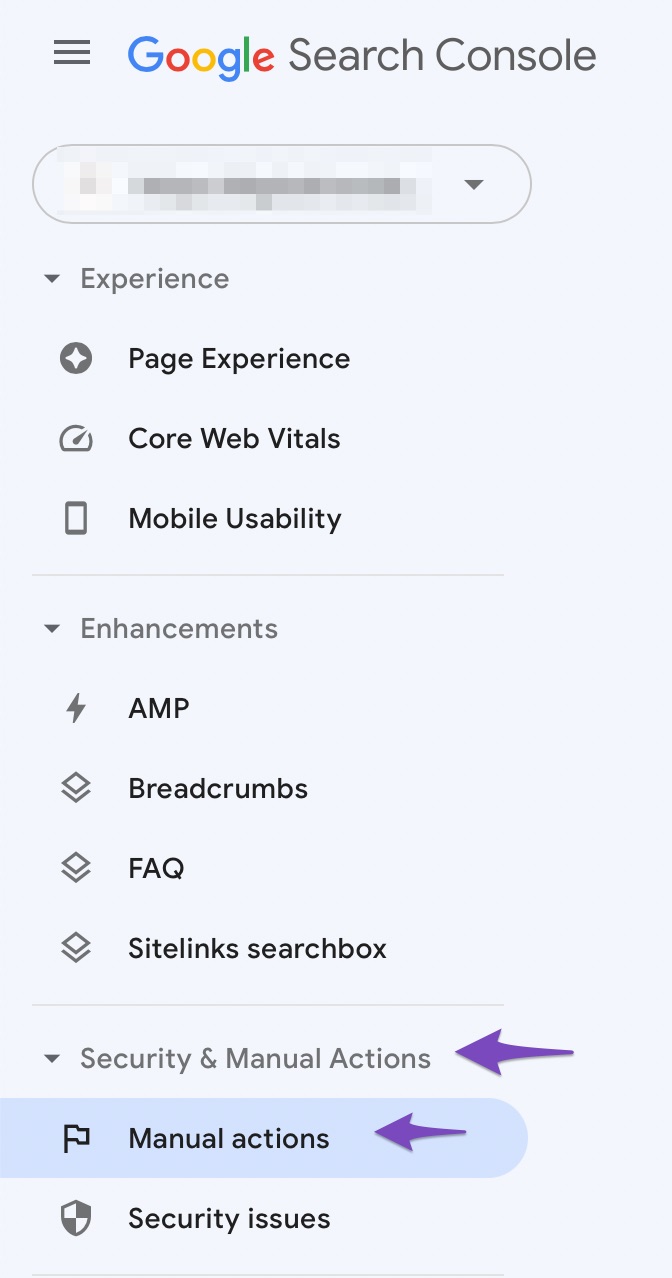
This penalty is applied by Google manually. As a result, this penalty will reduce your site’s ranking and remove the website entirely from the SERPs. If you want the search engines to reconsider this, you might have to delete or rewrite the offending content and provide original content that adds value to users.
3.2 Rank Math Analytics
Rank Math’s Analytics feature takes all the required data from your search console, Google Analytics, and fetches you meaningful graphs and insights.
It is very easy to find out thin content from Rank Math’s Analytics feature.
3.2.1 Enable the Analytics Module
To detect thin content on your site, navigate to WordPress Dashboard → Rank Math SEO and enable the Analytics module, as shown below.
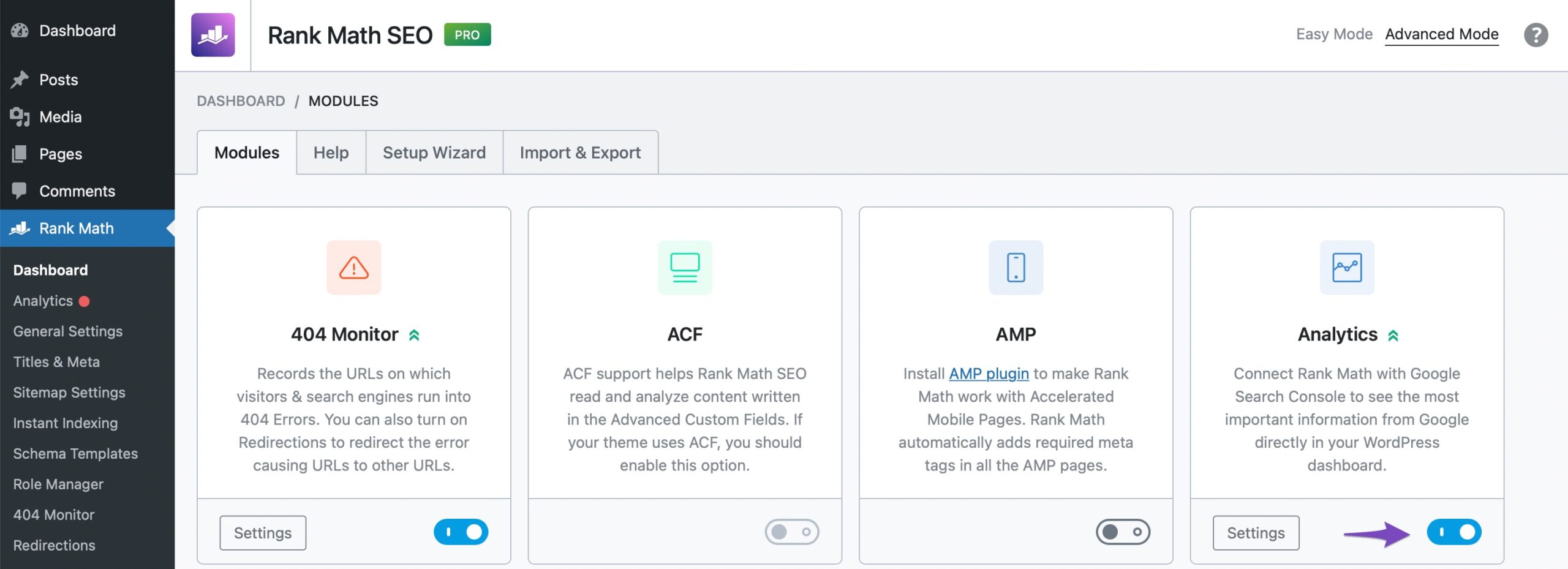
Next, navigate to Rank Math SEO → General Settings → Analytics, as shown below.
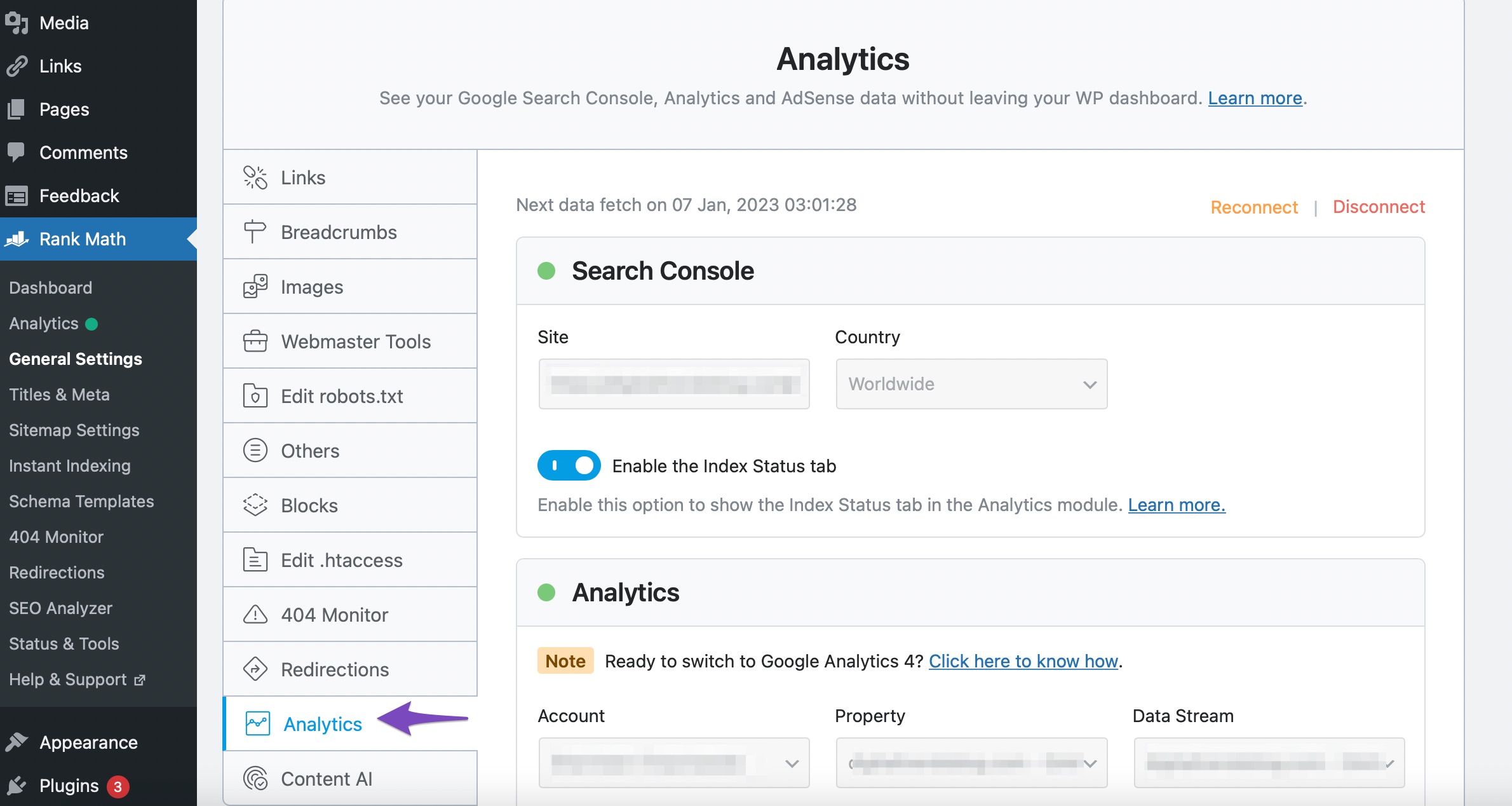
3.2.2 Navigate to the SEO Performance Tab
The next step is to navigate to Rank Math SEO → Analytics → SEO Performance, as shown below.
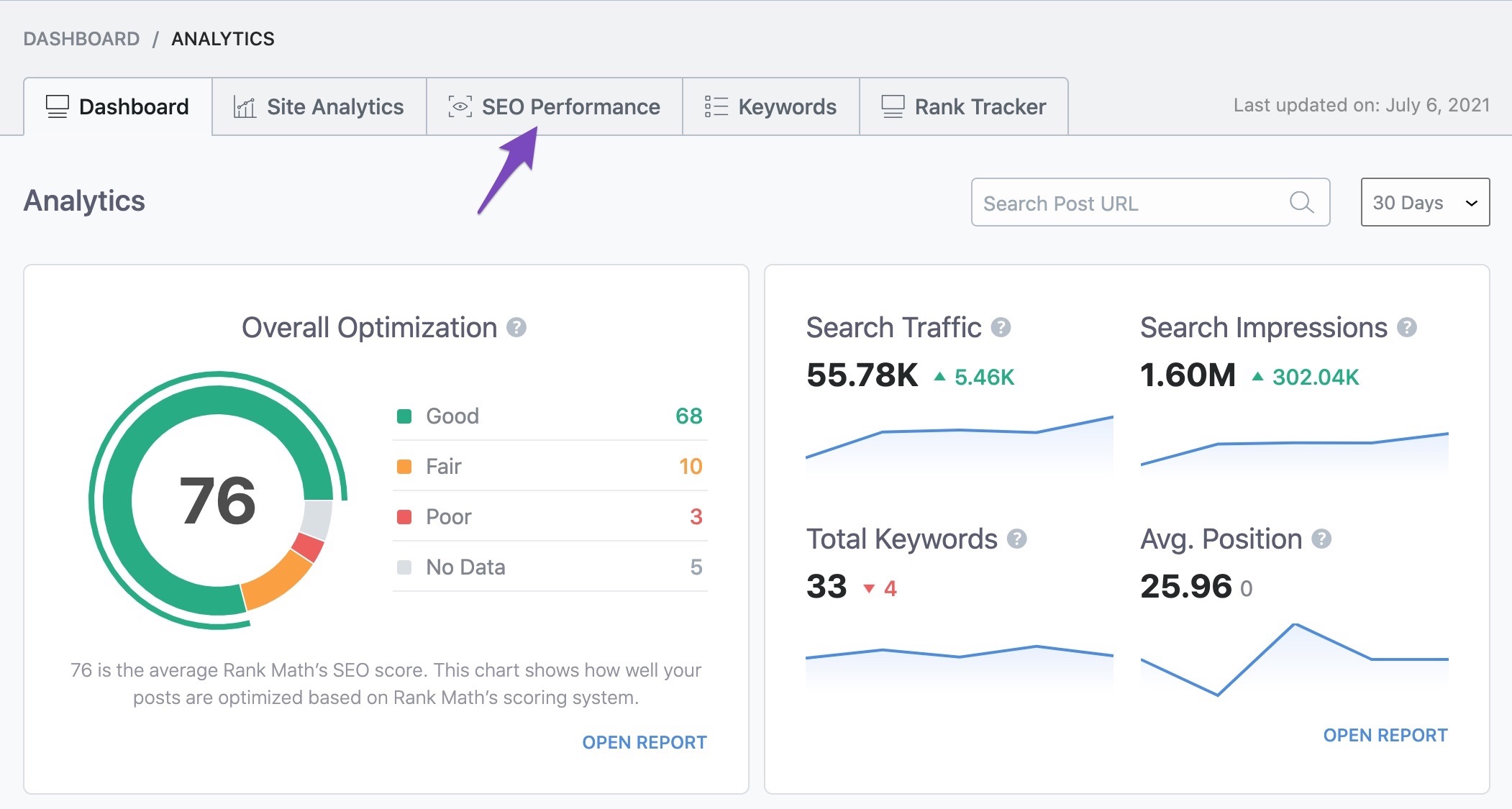
3.2.3 Analyze Your SEO Reports
The SEO Performance tab gives you a quick update on your search traffic, search impressions, the total number of ranking keywords, total search clicks generated, CTR, and the average position of your site on search results.
You can select 6 Months in the dropdown menu to view your SEO reports over the last six months, as shown below.
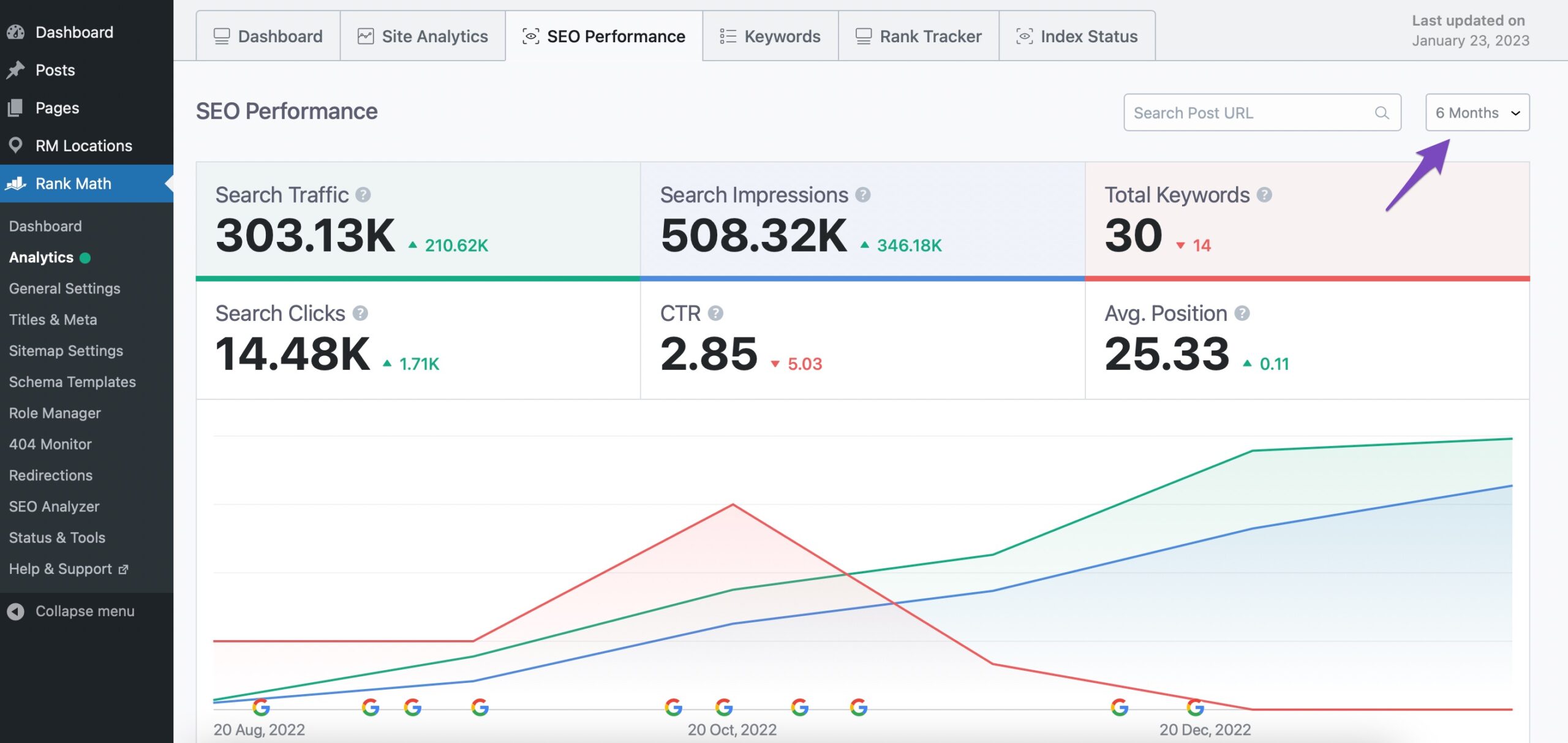
When you scroll down, you can find the pages that are not generating any impressions or search traffic over the last six months.
We recommend you review these pages and see whether the content is relevant or long enough to fulfill the visitors’ needs. If the content is irrelevant, duplicate, or orphan page, then it is considered thin content. And you might either need to delete it or add relevant quality content.

4 How to Deal With Thin Content
4.1 Merge Similar Content
If you have multiple thin contents on similar topics, you can merge them into a single well-detailed topic. However, you should set up 301 redirects to retain the backlinks of the deleted posts. You can refer to this knowledgebase article on creating redirections in Rank Math.
4.2 Optimize the Content for Secondary Keywords
From the SEO Performance tab, scroll down, and click the Title of the article you want to update, as shown below.

You will observe the article ranks for some keywords you never optimized it for. Those are your secondary keywords, and you should optimize the content for them.
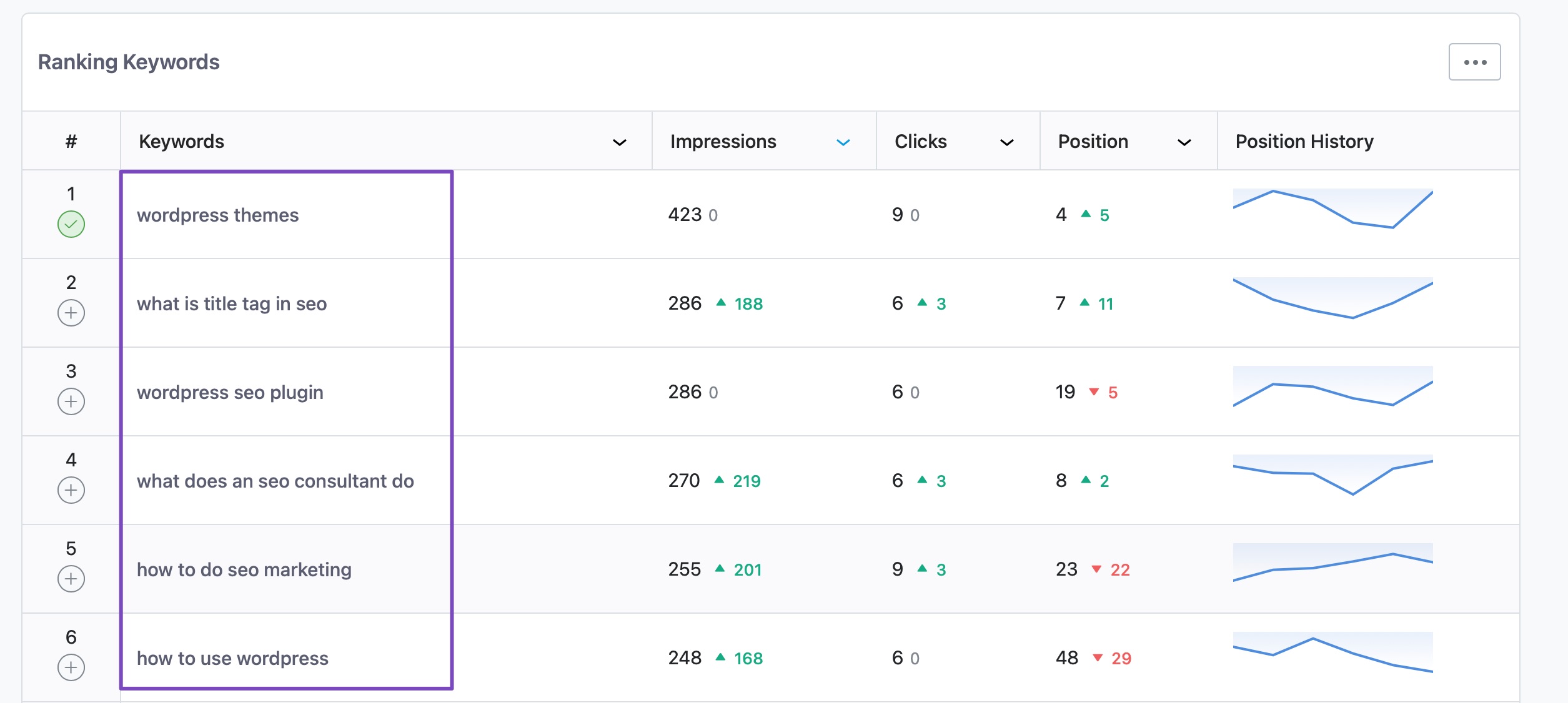
5 Final Thoughts – Content Audit
We believe that finding thin content is not a difficult task, but at the same time, you’ll have to apply your consciousness. Back in the old days, you could rank for any irrelevant content with spammy links with keyword stuffing. But after launching the Panda update, Google has become so strict that only content that provides high value gets a chance to rank on SERPs. It also removes all low-ranking content from the search results. So the best option is to do a regular content audit and optimize your web content.
We hope you can remove or improve thin content from your site. If you have questions, you’re always more than welcome to contact our dedicated support team. We’re available 24/7, 365 days a year…